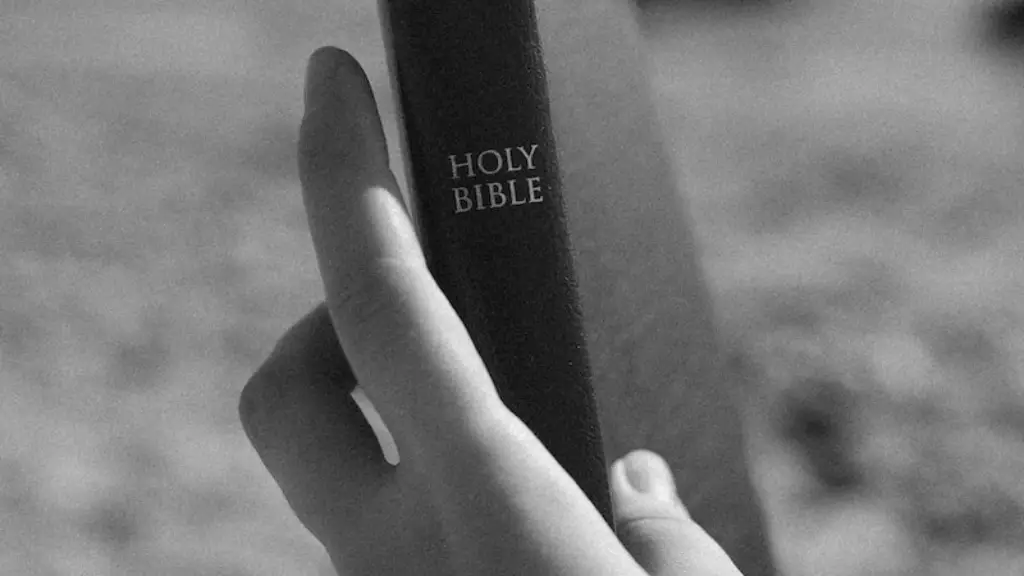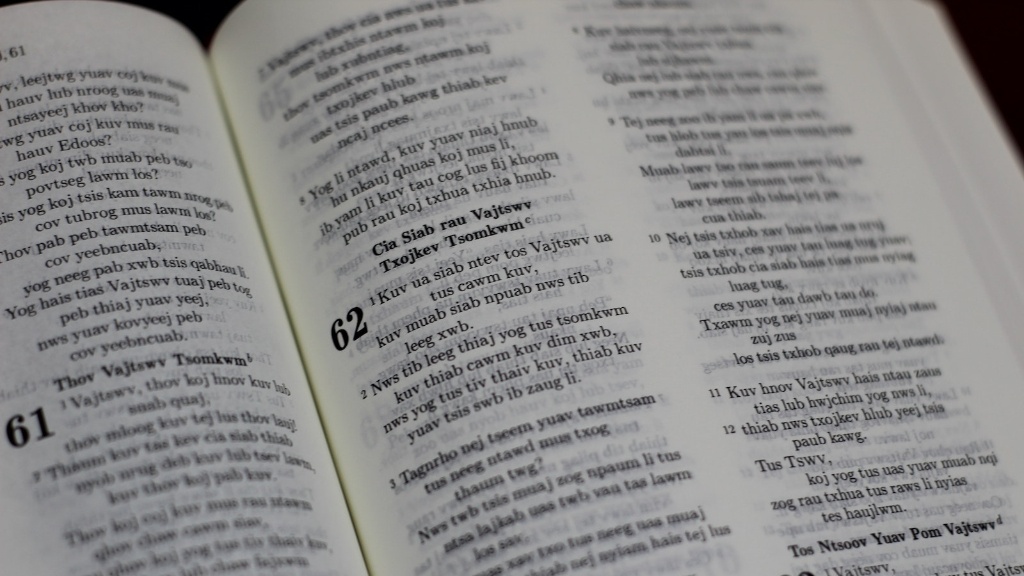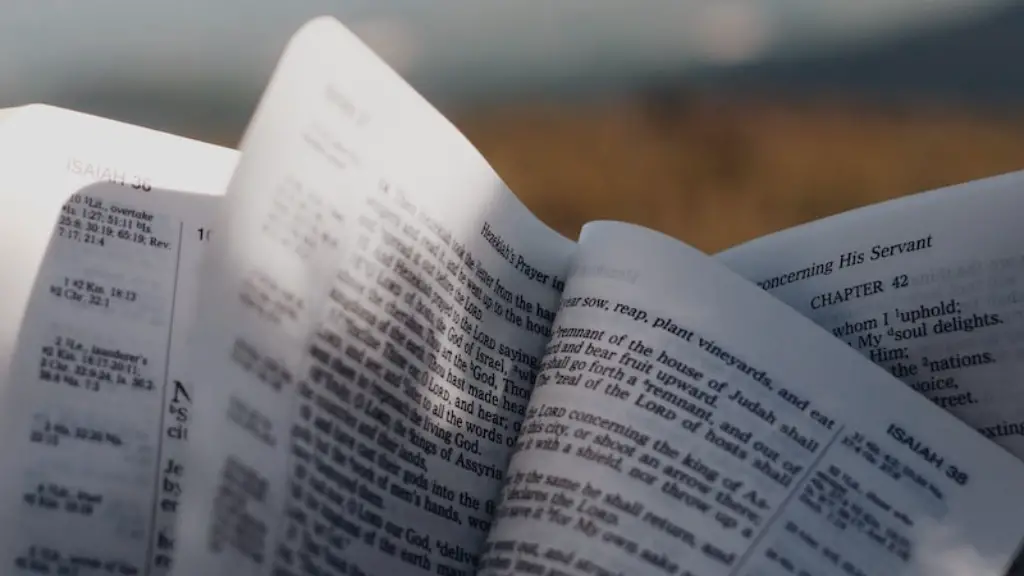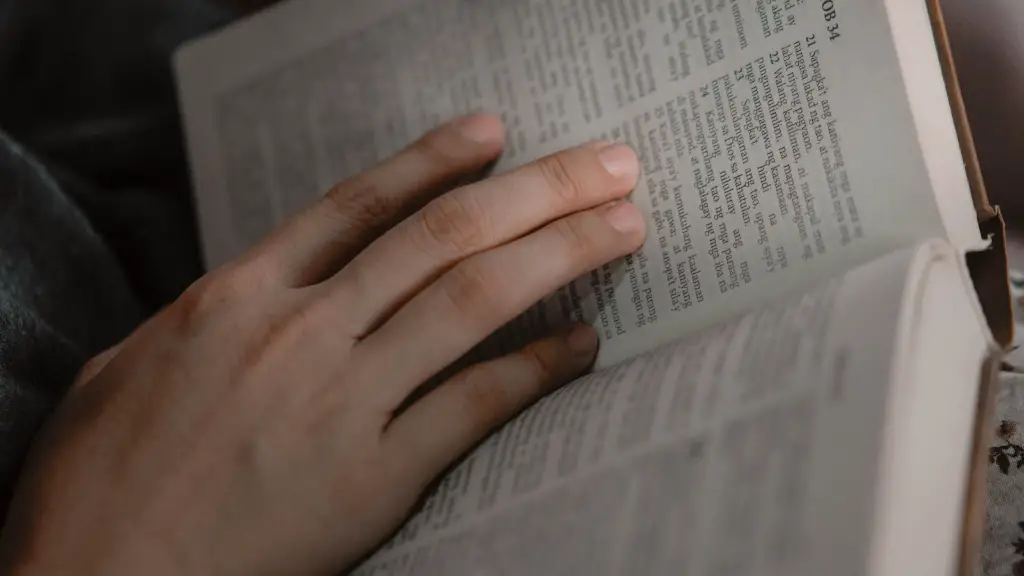Scriptural Authority
The Bible does not have a specific teaching on cremation, as it was not practiced by the Hebrews or other nations in Bible times. The only direct reference to it, is found in Ezekiel Chapter 32, verse 22 “In the midst of the earth she is made a burning place for the host of heaven”. This passage suggests that the Egyptians believed in cremation and the practice continued from ancient times to the present day.
Today, both the Old and New Testaments of the Bible give believers guidance about death and grieving. The Bible encourages people to take a good look at their lives and reflect on their relationship with God and make necessary corrections. It is also important to remember that as believers, we will live forever with God and our loved ones, no matter how they are laid to rest.
For many Christians, the actual burial is seen as a symbol of hope; body, burial and resurrection. For people of the Christian faith, it may be thought of as an act of respect for the body’s sanctity, to lay it to rest in a permanent and consistent way that honors the will of God.
What Do The denominations Say?
Most religious denominations today have no specific viewpoint about cremation. In general, traditional religions, including Christianity, Judaism and Islam, practice burial rites instead of cremation due to the belief in a physical resurrection. On the other hand, some liberal denominations do not consider cremation as a violation of biblical principles and therefore accept it as an alternative to burial.
In the Catholic Church, cremation is an accepted practice if there is no intention to express a lack of faith in the resurrection of the body. There are also some churches, such as some Eastern Orthodox and Eastern Rite sects and the Church of Jesus Christ of Latter-day Saints, that still prefer burial as opposed to cremation and include specific guidelines in their canon regarding cremation.
For some, cremation is seen as a way to honor their loved ones rather than as a last goodbye. A cremation service allows family and friends to gather in remembrance and pay tribute to a life lived.
Historical Perspectives
Cremation was first practiced during the Bronze Age, around 3000 BC. It was also practiced by the Greeks and Romans, who at times would cremate their enemies killed in war. In Jewish culture, there was also an emphasis on embalming the dead, which was considered an act of respect for the physical body.
The practice of cremation started to decline in the early centuries of the Christian Church due to the belief in a physical resurrection. The Church even banned the practice in the 6th century. Although it was not practiced during the middle ages, cremation started to become popular in the late 19th and early 20th centuries, as an alternative to burial that Christians began to accept and view as an acceptable option.
Modern Developements
More recently, the practice of cremation has risen in popularity for several reasons such as cost and land availability. Cremation is significantly less expensive than traditional burial, and it does not take up valuable land. It is becoming an increasingly popular option for many people who are looking for an alternative to burial. Cremation also gives families and friends the flexibility to hold memorial services in a variety of locations and times.
Furthermore, cremation allows people to memorialize their loved ones in a variety of creative and meaningful ways. Cremation urns or jewelry, can be used to contain the ashes and keep them close to the hearts of family and friends. Additionally, some families may choose to scatter the ashes in a particular place that was meaningful to the deceased while they were living.
Global Cremation Trends
Currently, there are no large-scale studies that explore spiritual and religious beliefs related to cremation on a global scale. In North America, cremation is performed almost twice as much as burial, according to the Funeral and Memorial Information Council (FAMIC). In the United Kingdom the Cremation Society of Great Britain reported that figures for 2019 show that the cremation rate has increased from 70.8% in 2018 to 72% in 2019.
The cremation rate has also risen significantly in India, where it has gone from 5.2% in 1990 to 49.2% in 2019, according to the Indian Ministry of Health and Family. In Japan, the practice is traditional and almost 100% of the population opt for cremation rather than burial.
Cremation is a personal choice, and it is important to remember that it is the relationship with God and people that is the most important aspect of living. The way we honor and remember the deaths of our loved ones is an important decision, and this choice should be made with respect, sensitivity, and a sense of awe and reverence.
Environmental Factors
Cremation has many environmental benefits. It is estimated that cremation produces 80-100 liters of liquid waste, depending on the size of the body, compared to the average burial which produces almost one ton of steel, wood, and concrete. Cremation also uses much less energy for a much shorter time period, significantly reducing its contribution to global warming. Additionally, eco-friendly cremation options, such as aquamation, have been developed which use heated water to break down the deceased’s body instead of fire.
Furthermore, cremation provides families with the flexibility to transport their loved one’s remains to multiple locations in an environmentally friendly way. Cremated remains can be divided among family members and scattered in different geographical locations. This can be a great way to keep the deceased person’s memory alive in different parts of the world.
Legal Considerations
There are several legal considerations related to cremation that must be taken into account. In many countries, a death certificate must be filed with local authorities prior to cremation. It is also important to ensure that the executor of the will or the next-of-kin of the deceased is aware of the details of the cremation and consents to it. In some countries, there are also legal requirements with regard to scattering ashes in public places and private places.
In addition, it is important to understand the local laws related to cremation and the permits, licensing, and regulations that may be required. It is also important to ensure that all legal documents are in order prior to cremation to ensure the process goes smoothly.
Final Thoughts
Overall, the practice of cremation is a deeply personal decision that should be made after careful consideration of all factors, including spiritual and legal implications. As a widely accepted practice today, cremation is becoming increasingly popular because it can be an economical, environmentally friendly, and meaningful way to honor the dead.




